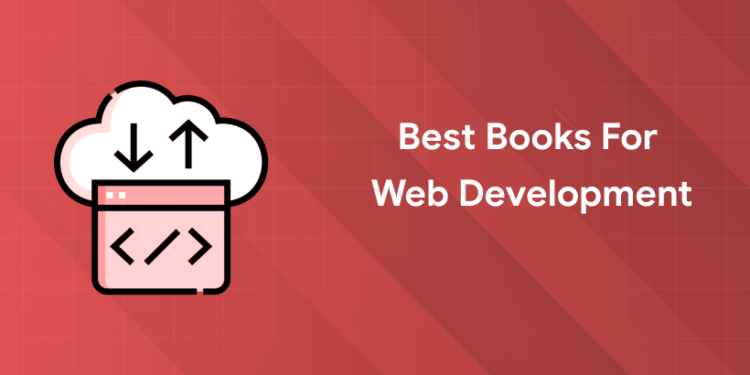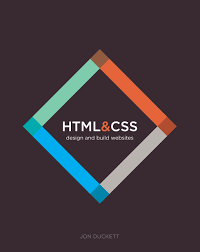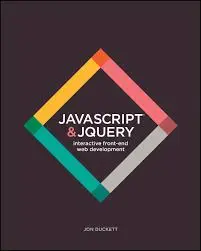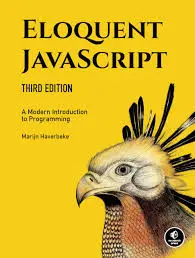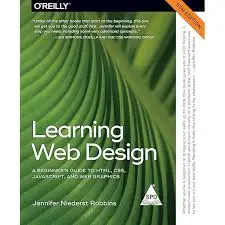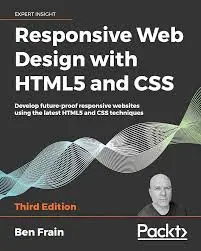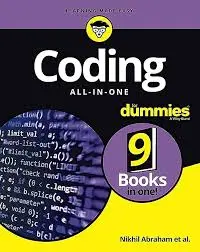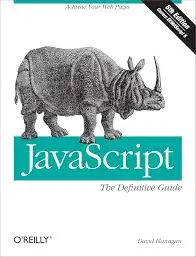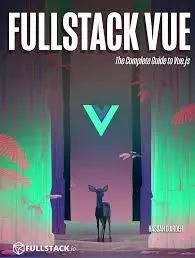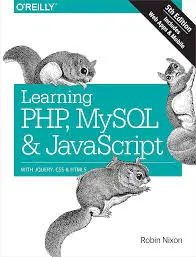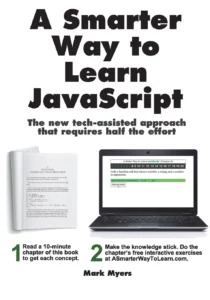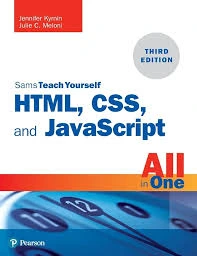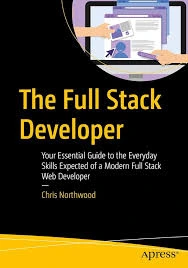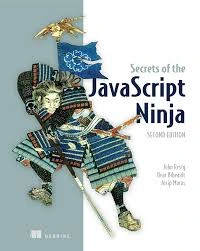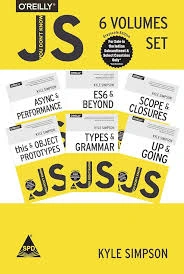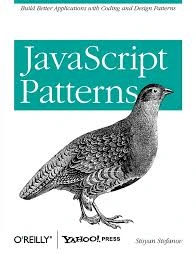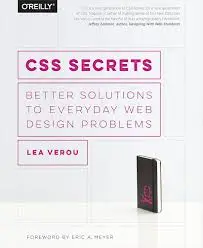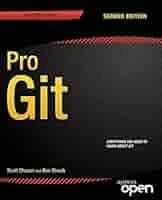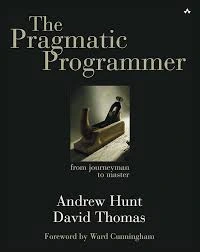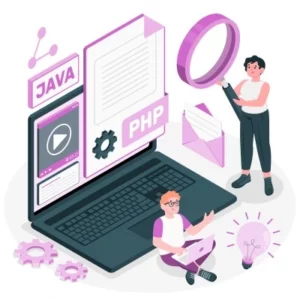Table of Contents
Introduction
In 2025, mastering web development remains a blend of understanding core technologies and staying ahead with evolving trends. Books provide deep, structured knowledge that supplements practical coding experience, making them invaluable for beginners and seasoned developers alike.
This guide highlights 15 must-read books that cover the essentials from HTML and CSS to full-stack development and UX design. Whether starting out or aiming to level up, these books paired with hands-on courses like the Entri Full Stack Developer Course will empower your journey.
The 15 Best Web Development Books to Read in 2025
1: Which of the following is a JavaScript framework/library?
1. HTML and CSS: Design and Build Websites — Jon Duckett
A visually engaging guide perfect for beginners, this book uses clear explanations and striking graphics to demystify HTML5 and CSS3. Learn everything from page structure to responsive design with practical examples and easy-to-follow exercises.
2. JavaScript and JQuery: Interactive Front-End Web Development — Jon Duckett
Complementing his HTML & CSS book, this one introduces dynamic web features. You will explore JavaScript fundamentals, DOM manipulation, and jQuery integration, enabling interactive, user-friendly websites.
3. Eloquent JavaScript — Marijn Haverbeke
An in-depth dive into JavaScript programming that goes beyond basics, with exercises covering functional programming, asynchronous behaviors, and Node.js for back-end applications.
4. Learning Web Design: A Beginner’s Guide — Jennifer Niederst Robbins
This all-in-one beginner book covers web design and coding basics, including HTML, CSS, JavaScript, command-line usage, and Git. It balances theory with hands-on projects, ideal for new learners.
5. Responsive Web Design with HTML5 and CSS3 — Ben Frain
Focuses on crafting mobile-first, accessible, and adaptive web layouts using CSS Grid, Flexbox, and media queries—essential for today’s devices and user expectations.
6. Coding All-in-One For Dummies — Nikhil Abraham et al.
A beginner-friendly, comprehensive resource covering many programming languages, debugging techniques, and career advice—a great starter for aspiring developers.
7. JavaScript: The Definitive Guide — David Flanagan
For intermediate and advanced users, this guide provides deep JavaScript knowledge, including modern APIs and best practices for writing robust web applications.
8. Fullstack Vue: The Complete Guide to Vue.js — Hassan Djirdeh, Nate Murray, Ari Lerner
Master the Vue.js framework with detailed lessons on building reactive front-end apps, testing, and deployment.
9. Learning PHP, MySQL & JavaScript — Robin Nixon
Learn how to create dynamic, data-driven websites by combining server-side scripting and database management.
10. A Smarter Way to Learn JavaScript — Mark Myers
Uses interactive exercises to make learning JavaScript easier—perfect for self-paced beginners who want practical understanding.
11. The Joy of PHP Programming — Alan Forbes
Covers PHP programming from basics to advanced topics with MySQL integration, practical examples, and project-based learning for developing dynamic websites.
12. HTML, CSS, and JavaScript: All In One — Jennifer Kyrnin & Juli Meloni
An integrated guide that connects core front-end technologies in a step-by-step format; great for both novices and professionals.
13. The Full Stack Developer — Chris Northwood
Ideal for aspiring full-stack developers, this book covers APIs, security, UX, agile development, and modern architectural patterns.
14. Designing with Web Standards — Jeffrey Zeldman
Focuses on industry best practices and standards to build accessible, fast-loading, and maintainable websites.
15. Secrets of the JavaScript Ninja — John Resig & Bear Bibeault
Delve into advanced JavaScript techniques with practical examples, helping you write efficient and maintainable code like a pro.
16. You Don’t Know JS (book series) – Kyle Simpson
A deep exploration of core JavaScript concepts designed for intermediate to advanced developers who want to truly understand the language mechanics and best practices.
17. JavaScript Patterns – Stoyan Stefanov
Focuses on reusable coding patterns and best practices that help build scalable and maintainable JavaScript applications.
18. CSS Secrets: Better Solutions to Everyday Web Design Problems – Lea Verou
Offers 47 practical CSS tips and tricks for solving common design challenges, from animations to layouts, helping developers write clean and efficient CSS.
19. Pro Git – Scott Chacon and Ben Straub
A comprehensive guide to Git version control, an essential skill for all web developers to manage code collaboratively and efficiently.
20. The Pragmatic Programmer – Andy Hunt and Dave Thomas
Although not specific to web development, this timeless book covers best coding practices, problem-solving techniques, and professional growth advice valuable for any developer.
🚀 Start Coding Today! Enroll Now with Easy EMI Options. 💳✨
Get Hired as a Full-Stack Developer: Master the Skills Employers Are Looking For!
Start Learning With EMI Payment OptionsTips for Learning with Books
To make the most of these excellent web development books in 2025, consider the following practical tips that complement reading with active learning and career growth:
-
Code Along with Examples
Don’t just read—actively type out code snippets and exercises in your code editor. This hands-on approach helps solidify concepts, uncover errors, and deepen understanding.
-
Build Small Projects
Apply what you learn by creating simple websites or apps inspired by the projects in the books. Building your own projects accelerates skill retention and builds a portfolio useful for job applications.
-
Combine Books with Interactive Learning
Use online coding platforms, video tutorials, and courses in parallel with reading. For example, enrolling in a comprehensive program like the Entri Full Stack Developer Course provides expert mentorship, project guidance, and live practice sessions to supplement book knowledge.
-
Join Developer Communities
Participate in forums such as Stack Overflow, Reddit’s r/webdev, and local meetup groups to discuss challenging topics, seek help, and stay motivated by connecting with peers.
-
Set Learning Goals and Schedules
Define clear milestones—such as completing a chapter or project weekly—to maintain steady progress. Regular, focused practice beats sporadic cramming.
-
Take Notes and Summarize
Create your own notes, cheat sheets, or mind maps to distill key concepts from the books. Revisiting and summarizing reinforces memory and provides quick reference material.
-
Practice Debugging and Refactoring
Embrace debugging exercises and revisit your old code to improve structure and readability. This sharpens problem-solving skills and coding discipline.
-
Stay Updated on Trends
Even while reading classic books, follow blogs, podcasts, and course updates to keep pace with the latest web technologies and industry practices.
-
Balance Depth with Breadth
Start with basics and gradually tackle advanced topics. Master core languages like HTML, CSS, and JavaScript before exploring frameworks, back-end technologies, or DevOps concepts.
-
Apply Real-World Use Cases
Connect what you learn to real business requirements and user experiences. This contextual understanding prepares you for professional development work.
Following these tips will transform your reading from passive consumption into an engaging, productive learning journey, empowering you to become a proficient web developer ready for the challenges of 2025 and beyond.
Glossary of Essential Web Development Terms for 2025
API (Application Programming Interface):
A set of rules and protocols enabling different software applications to communicate with each other. APIs allow web apps to interact smoothly with servers, databases, and third-party services.
Backend Development:
The server-side coding and logic behind a website or web application, responsible for data handling, database interaction, and server communication.
Bandwidth:
The amount of data that can be transmitted over a network connection in a given amount of time. High bandwidth improves website loading speed and overall performance.
CDN (Content Delivery Network):
A network of global servers that deliver website content faster to users based on their geographic location, reducing latency and improving speed.
CMS (Content Management System):
Software that allows users to create, edit, and manage website content easily without deep coding knowledge. Examples include WordPress and Joomla.
Cookies:
Small data files stored in a user’s browser that track and save user preferences and session information for personalized web experiences.
Crawlability:
A website’s ability to be discovered and properly indexed by search engines via bots or crawlers, which is essential for SEO.
DOM (Document Object Model):
An interface that allows scripts to dynamically access and update a webpage’s content, structure, and style in real-time.
Frontend Development:
Development related to the user-facing part of a website—everything users see and interact with—primarily built using HTML, CSS, and JavaScript.
HTTP/HTTPS:
Protocol standards for transmitting web pages over the internet; HTTPS is the secure version using encryption for privacy.
JavaScript:
A versatile programming language used to make web pages dynamic and interactive.
JSON (JavaScript Object Notation):
A lightweight data format used to exchange data between server and client.
Load Time:
The time it takes for a web page to be fully visible and usable in a browser, impacting user experience and SEO rankings.
Responsive Design:
An approach to web design focused on making websites display and function well on all devices and screen sizes.
REST (Representational State Transfer):
An architectural style for designing networked applications, typically used in APIs for web services.
SEO (Search Engine Optimization):
Techniques used to improve website ranking on search engines, making sites more discoverable by users.
SSL (Secure Socket Layer):
A standard security protocol for establishing encrypted links between a web server and a browser, ensuring secure data transmission.
UI (User Interface):
The visual part of a website or application through which users interact.
UX (User Experience):
The overall experience and satisfaction a user has when interacting with a website or app.
Version Control:
Systems like Git that track changes in code, enabling multiple developers to collaborate efficiently.
Web Hosting:
Service that provides the technology and infrastructure for storing and serving websites to users on the internet.
Wireframe:
A basic visual guide outlining the structure and layout of a web page, used in the design planning phase.
Conclusion
In 2025, these books represent the best combination of foundational knowledge and modern web development practices. Reading them will equip you with the skills needed to succeed, from front-end basics to complex full-stack projects. To truly stand out in your career, supplement your study with hands-on learning through courses like the Entri Full Stack Developer Course, offering structured training, industry insights, and placement support. Start your journey today and become a confident, competent web developer ready for the challenges of the modern tech landscape.
Related Articles
🚀 Start Coding Today! Enroll Now with Easy EMI Options. 💳✨
Get Hired as a Full-Stack Developer: Master the Skills Employers Are Looking For!
Start Learning With EMI Payment OptionsFrequently Asked Questions
What are the best books to start learning web development in 2025?
For beginners, “HTML and CSS: Design and Build Websites” by Jon Duckett and “Learning Web Design” by Jennifer Niederst Robbins are excellent starting points. These books offer clear visuals and step-by-step instructions to build a solid foundation.
Can reading books alone make me a proficient web developer?
While books provide deep understanding, combining them with practical coding, interactive tutorials, and courses like the Entri Full Stack Developer Course accelerates skill development and job readiness.
How do I choose the right web development book for my skill level?
Beginners should focus on introductory books that explain HTML, CSS, and JavaScript basics. Intermediate learners can choose titles like “Eloquent JavaScript” and “Fullstack Vue,” while advanced developers may benefit from “Secrets of the JavaScript Ninja” or “JavaScript: The Definitive Guide.”
What is the benefit of learning version control, and which book covers it?
Version control, especially with Git, is essential for managing code changes and collaborating in teams. “Pro Git” by Scott Chacon and Ben Straub is a thorough resource to master this skill.
How important is it to stay updated with web development trends?
Very important! The tech landscape evolves rapidly. Books like “Responsive Web Design with HTML5 and CSS3” and “The Full Stack Developer” help you stay current with best practices. Pairing books with updated online content and courses ensures you remain competitive
Are there books that focus on both front-end and back-end development?
Yes, books like “Learning PHP, MySQL & JavaScript” and “The Full Stack Developer” cover comprehensive full-stack skills, including server-side programming and database management.
How do I effectively use books to build real web applications?
Practice coding along with the book, work on projects suggested in the chapters, and experiment by creating your own versions. Complement reading with coding challenges and structured learning paths found in courses like Entri’s for practical exposure.
Can I use these books to prepare for a career in web development?
Absolutely. Together, these books build strong technical foundations, and when combined with practical courses and projects, they prepare you comprehensively for careers as front-end, back-end, or full-stack developers.
How is the Entri Full Stack Developer Course useful alongside reading books?
The Entri course offers live and recorded sessions, real-world projects, expert mentorship, and placement support. It bridges theory from books with hands-on skills that employers seek, accelerating your path from learner to job-ready developer.
Can I use these books to prepare for a career in web development?
Absolutely. Together, these books build strong technical foundations, and when combined with practical courses and projects, they prepare you comprehensively for careers as front-end, back-end, or full-stack developers.


